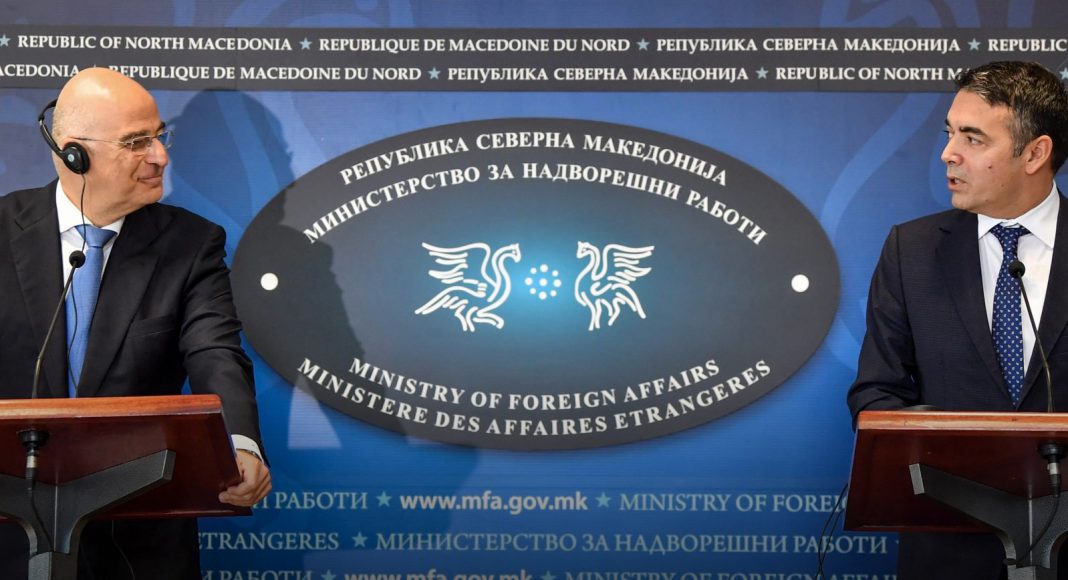As a consequence of French President Emmanuel Macron’s decision in October to call for a temporary hold on EU accession discussions for Albania and North Macedonia, Greece has been able to claim a new role in regard to two of its northern neighbours, one of public advocacy.
Greek Minister of Foreign Affairs Nikos Dendias was able to reiterate Greece’s full support for the EU accession prospects of North Macedonia, during his visit to Skopje on November 26th.
Dendias emphasised that this depends on Skopje implementing important reforms and on an alignment with the European acquis during eventual accession negotiations.
“I share North Macedonia’s disappointment about the 28 EU member states not reaching a positive decision on starting accession negotiations,” Dendias said and added that “on our part, we have done all we could towards reaching a positive decision on this issue, in coordination with our EU partners.”
He added, “we have a joint future if we act in good faith. Greece supports the EU accession of North Macedonia and other Western Balkan countries. This is our common goal. Starting talks will be a significant step forward, and it’s one of Greece’s main goals.”
Dendias revealed that he invited both his Albanian and North Macedonian counterparts to a working breakfast with EU foreign ministers’ on December 9.
Bilateral concerns
Briefly visiting Skopje on November 26 and meeting with Foreign Minister Nikola Dimitrov, Dendias noted that relations with North Macedonia had “dramatically improved” since the Prespes Agreement was signed in June 2018, ending a decades-old dispute between the two neighbours.
Dendias added that “some issues” of the controversial deal ratified earlier this year, such as an agreement on trademarks, needed to be dealt with as soon as possible, and explained that Greece was focused on ensuring full implementation of the details of the agreement. Operational level meetings on trademark issues and on the opening of new border crossings are planned to start shortly.
In response, Dimitrov said that he also saw the need for full implementation of the terms of the Prespes Agreement and went on to refer to Greece as a “strategic partner, neighbour and friend” of North Macedonia, noting that both countries must take advantage of the new possibilities opened up by the accord.
When asked about the April 2020 national elections in North Macedonia having a potentially negative impact on the Prespes Agreement, Dimitrov said it must be implemented despite any and all elections, as it had become part of his country’s legal system and accordingly could not be challenged by anyone in North Macedonia.
While in Skopje Foreign Minister Dendias also met with North Macedonia’s President Stevo Pendarovski and Prime Minister Zoran Zaev.
Earthquake diplomacy and Washington’s eye
Dendias left Skopje hurriedly to stop briefly in Albania, expressing sympathy for the earthquake victims and helping to initiate a now massive Greek contribution to the international earthquake relief effort. Dendias visited Durres, near Tirana and close to the quake’s epicentre, the same day that the city had been hit with a 6.4 Richter tremblor.
Washington is surety watching these interactions. It is still unknown whether President Donald J. Trump will reschedule his postponed September meeting with Greek Prime Minister Kyriakos Mitsotakis, but Greece’s positive engagement with its neighbours should increase the possibility that this will happen soon.
Sourced by: New Europe
